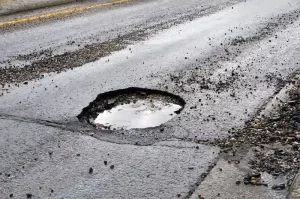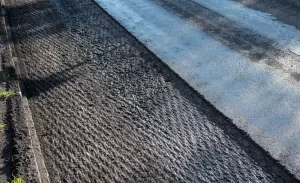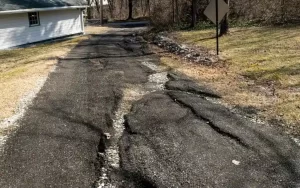3 Ways Asphalt Paving Gets Damaged
Asphalt is one of the most popular materials in existence for paving and for patching existing roadways, parking lots, and driveways. Like any other material, over time asphalt paving can be damaged by weather and normal wear and tear. For instance, it is subject to incurring damage, and there are a number of things that are capable of degrading asphalt paving over a period of time. Below are three of the most common enemies of asphalt pavement and what you can do to limit or prevent that kind of damage.
Water
Water is one of the biggest enemies of asphalt pavement, and it can be in the form of heavy rain, melting ice and snow, or stagnant water that sits on the surface. If an asphalt surface was installed well originally, it should drain water away from the surface so that stagnant water doesn’t have a chance to impact the longevity of the pavement. It’s also very possible for an asphalt surface to be weakened by water on the surface or by liquids from vehicles. Any water on the surface at all will generally trigger some kind of ripple effect on asphalt surfaces, and these can include cracks that get expanded, and even potholes.
The freeze and thaw cycles of winter can cause ice or snow to work into the asphalt and promote cracking and worse issues. One of the best solutions to all water-based issues is to use a relatively new material called porous asphalt. This material limits the amount of water that can build up on a pavement, because it allows any surface water to simply run through it and reach the ground level. This significantly reduces the likelihood of any kind of damage which might occur. You can make this even more effective by applying a regular sealcoat, so that you extend the life of your asphalt pavement and protect it against potential water damage.
Heavy duty vehicles
Really heavy vehicles can cause significant damage to driveways, parking lots, and roadways. The enormous weight of a vehicle applies a great deal of pressure to the asphalt itself, and that can cause it to shift under the weight of the vehicle. When heavy vehicles consistently roll over asphalt pavement, it can cause wheel paths to form, and eventually to degrade and damage the pavement. Even more damage is imparted to an asphalt surface where heavy vehicles park frequently, because this opens up the possibility of leaking fluids causing damage.
Any rapid starts or stops on the pavement will also impart some level of damage to the asphalt underneath, and cause it to degrade sooner than it should. The best way to prevent the various types of damage possible by heavy vehicles is to make sure that the asphalt is installed properly. Any pavement will be more durable and will withstand heavy weights better, when installation is carried out properly. If there’s any way of controlling or reducing the number of fast starts and stops on asphalt surfaces, this can be helpful as well.
Fuel, oil, and chemicals
There are other liquids besides water which can inflict serious damage on asphalt surfaces. There are many different chemicals that can trigger the deterioration of an asphalt pavement. Some chemicals over time can easily penetrate the surface of asphalt, and will cause it to soften up and possibly crumble. That in turn can cause a need for major repairs, and it might even be necessary to completely reinstall the asphalt surface.
The best way to avoid damage done by fuel, oil, or chemicals, is to regularly inspect your asphalt pavement to make sure that none of those substances are present. If you know a vehicle has some kind of fluid leaking from it, avoid parking it on the asphalt pavement. It’s worth taking some precautions that will help to preserve the life of your asphalt, rather than allow chemicals to degrade it and break it apart.






